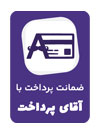do you worry about what will happen with the minority language? Whether it will still be the means of communication between you and your child, or whether the majority language will take over? If you are a bit concerned, you are not alone, but there are steps you can take to prepare yourself and your child!
There are many reasons why the school start can have a major impact on how your child uses his or her languages. First of all, the time spent in a purely majority language environment increases significantly. Your child will get used to only speaking the majority language for a big part of the day, so it is no surprise if the use of it continues when your child comes home from school. Something fun, exciting, upsetting or worrying often happens during a school day and it is so much easier for your child to tell you about in in the language it happened. Allow your child to “let the steam off” in which ever language – you can pick up the topic again later in the evening in your language. My daughter has told me that it was sometimes frustrating for her when I asked her to stick to Swedish when she just really, really wanted to tell me something about school (sorry about that!)
With school comes more friends and most or at least many of them may only speak the majority language and your child will want to be just like everybody else, Speaking a different language may not fit in with this thought. With more friends often also comes peer pressure and an expectation to be part of the group and again, the minority language might be at the losing end. For you as a parent it is important to continue to stay consistent in the language use and show your pride in your own language.
Going to school introduces your child to a whole new world which also means a lot of words that you may not have been using in your day-to-day lives in the minority language. This is another reason why it might be difficult for your child describe something at school, so prepare yourself and your child by making sure you know the school-specific vocabulary in the minority language. Do you know the words for all the school subjects, for ‘lockers’ and ‘morning assembly’ in your language?
Then there is the question about homework, which will all be in the majority language – if you need to give your child a hand, which language should you use? There is no simple answer for this, as it does not make sense to try to use the minority language in all situations, for example with spelling or if a specific counting system is used in maths. However, when you feel it is appropriate, ask your child to explain the task in the minority language. In addition to bringing in the language, this will also make your child rethink the issue at hand. When you have to translate something into another language you process the topic in more detail than when you only talk about it. It may well be that your child notices a solution to the task just by having to translate it into your language!
Due to all of the above, it may well happen that your child avoids speaking your language altogether – read this post on how to react in this situation.
What could you do to prevent the minority language from losing ground? If possible, increase the exposure to it – as this may not always be a realistic solution, do your best to intensify the exposure (read this post for ideas). As always, do keep it fun – here is another article with lots of links to great ideas for fun ways to practice a language.
May the peace and power be with you.

 Persian
Persian  English
English  Arabic
Arabic 


